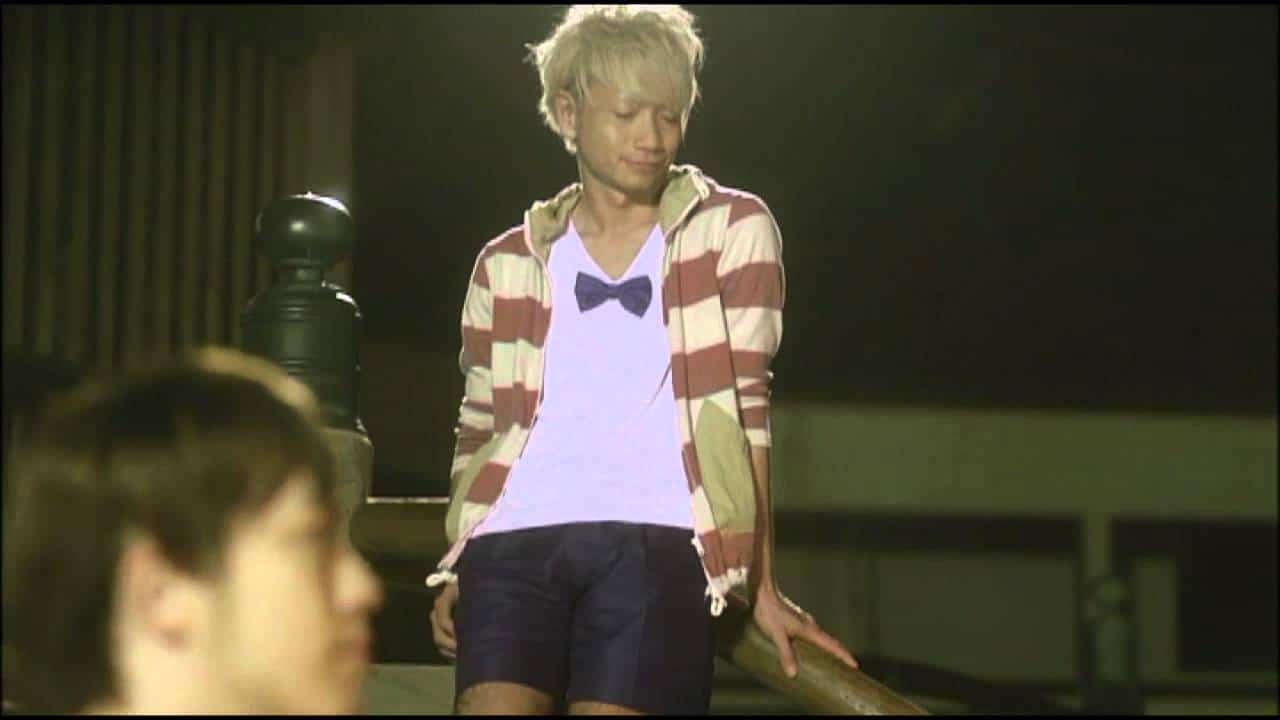When your debut short film wins acclaim at the Cannes Film Festival, it should not come as a surprise that your subsequent first full-length comes with heightened expectations. It was certainly the case with Wei Shujun's “Striding Into the Wind,” a film which seeks to take a look at a pseudo-rebellious Chinese youth in an ambitious manner. However, it does not consistently make its point stick, nor does its eventual climax feel like much of one.
“Striding Into the Wind” is screening at Helsinki Cine Aasia

Crucially, the movie centres around Kun (Zhou You), a 20-something film student who has a laissez-faire approach to everything in his life. During the opening scene, we see him fail a driving test in emphatic fashion after he purposefully veers off the course and finds himself full of bubbling rage. It could be interpreted as a flimsy metaphor for his idealistic non-conformism, strengthened by the fact that his repeated failures to obtain a license does not actually deter Kun from getting himself a car. His defiance does not stop there, either. Despite his ambitions to become an indie filmmaker, Kun never pays attention in his film studies, talking through lessons with a smarmy snobbishness (after all, he is technically more experienced on actual film sets than the man lecturing him), and lives with dreams which never seem to manifest.
For all its technical charms and occasionally well-placed subtext, “Striding into the Wind” can suffer from what feels like a lack of overt originality, even if it is undeniably creative. That, and Kun, the chief protagonist, struggles in multiple instances to come across as likeable, with his high ego habitually flitting between ill-mannered, and smugly endearing. Nevertheless, Kun does still have friends, all of which seem to serve a purpose of propping up the ambitious post-adolescent, though they do make an intriguing contrast to some of the patronising influences of older generations in the young man's life. Ultimately, however, the sympathy the filmmaker-hopeful wishes to gain can erode through having something akin to an “all bark, no bite” persona, and occasionally eye-rolling ignorance. For example, it is one thing to lambast an expensive course for not serving an intrinsically useful purpose, but it is another to be foolish enough to simply give up on it.
Continuing, this slice-of-life offering does attempt to make a point about the state of contemporary cinema, and commentate on conceited filmmakers. Although each individually are well-intentioned, they can hit the reefs of self-indulgence. So, while it is a fair and agreeable point to highlight restrictions yourself and peers may have to work within or around, Kun, who is not exactly a likeable everyman but by the same token could be considered an authentic reflection of an ambitious generation tired of formula, being the figurehead on-screen to demonstrate this gives the potential for any statements to not quite permeate through wholeheartedly. That, and perhaps a greater subtlety regarding the egotistical directors would allow for it not to feel overly hyperbolic.
Despite the mixed qualities of this particular release, one thing that cannot be faulted is the acting. Zhou You defies some of the less fleshed-out aspects of his character with a persistently strong, astute performance as Kun, and Tong Lin Kai is adept as the chubby, affable Tong. Together, their depictions add colour to the narrative, and help ensure any sense of optimism that is meant to be conveyed still has a chance to breathe.
Similarly, Jiehong Wang's strong cinematography ensures immersion in the visual aspect of the movie, with his lively landscapes and seamless adaptability a real highlight of the production. It feels reminiscent of a bygone era, and perceptibly draws out the youthful optimism one may be able to recall from a point in their own life.
All in all, “Striding Into the Wind” is a technically impressive film, but one which can labour towards efforts to galvanise its audience. Not helped by a meaty 156-minute runtime, this is a slow-burn release which will certainly find an audience for itself, but might not capture everyone's favour.















